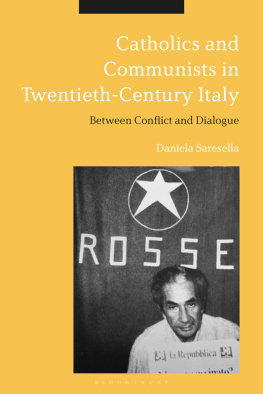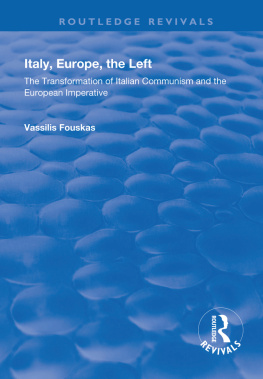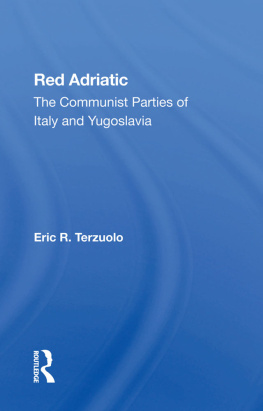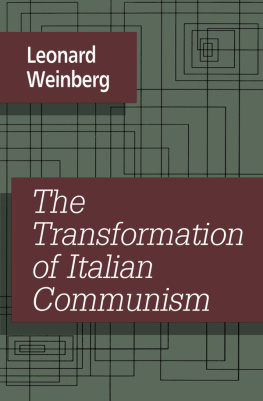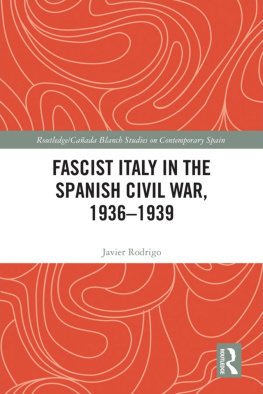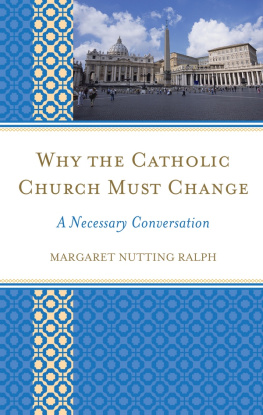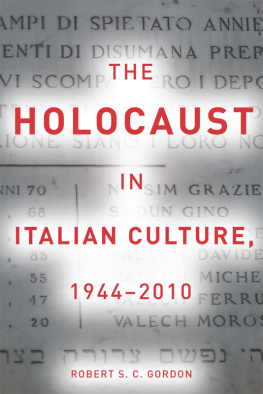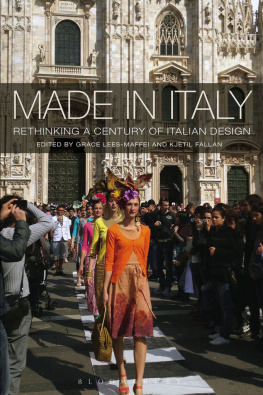Catholics and Communists in
Twentieth-Century Italy
Catholics and Communists in
Twentieth-Century Italy
Between Conflict and Dialogue
Daniela Saresella

AC | Azione Cattolica (Italian Catholic Action) |
ACLI | Associazione Cattolica Lavoratori Italiani (Catholic Association of Italian Workers) |
AN | Alleanza Nazionale (National Alliance) |
BR | Brigate Rosse (Red Brigades) |
CAI | Concentrazione Antifascista Italiana (Italian Antifascist Concentration) |
CCD | Centro Cristiano Democratico (Christian Democratic Centre) |
CEI | Conferenza Episcopale Italiana (Italian Episcopal Commettee) |
CISL | Confederazione Italiana Sindacati Lavoratori (Italian Confederation of Trade Unions) |
CL | Comunione e Liberazione (Communion and liberation) |
CLN | Comitato di Liberazione Nazionale (National Liberation Committee) |
CPS | Cristianos por el Socialismo (Christians for Socialism) |
DC | Democrazia Cristiana (Christian Democratic Party) |
DP | Democrazia Proletaria (Proletarian Democracy) |
DS | Democrarici di Sinistra (Democrats of the Left) |
FIM-CISL | Unione Lavoratori Metalmeccanici (Metalworkers Union) |
FOCSIV | Federazione Organismi Cristiani Servizio Internazionale Volontario (Federation of Christian International Voluntary Service Organisations) |
FUCI | Federazione Universitaria Cattolici Italiani (Italian Catholic University Association) |
GIAC | Giovent Italiana di Azione Cattolica (Catholic Action Italian Youth) |
GSF | Forum Sociale di Genova (Genoa Social Forum) |
IDOC | Centro Internazionale di Documentazione e Comunicazione (International Centre of Documentation and Communication) |
INSMLI | Istituto Nazionale per la Storia del Movimento di Liberazione in Italia (National Institute for the history of the liberation movement in Italy) |
IRI | Istituto per la Ricostruzione Industriale (Institute for Industrial Reconstruction) |
LD | Lega Democratica (Democratic League) |
LDN | Lega Democratica Nazionale (Democratic National League) |
MCC | Movimento dei Cattolici Comunisti (Movement of Communist Catholics) |
MCP | Movimento Cristiano per la Pace (Christian Movement for Peace) |
MPL | Movimento Politico dei Lavoratori (Workers Political Movement) |
MSI | Movimento Sociale Italiano (Italian Social Movement) |
PCI | Partito Comunista Italiano (Communist Party) |
PCS | Partito Cristiano Sociale (Social Christian Party) |
PD | Partito Democratico (Democratic Party) |
PdA | Partito dAzione (Action Party) |
PDS | Partito Democratico della Sinistra (Democratic Party of the Left) |
PDSC | Partito della Sinistra Cristiana (Party of the Christian Left) |
PLI | Partito Liberale Italiano (Liberal Party) |
PPI | Partito Popolare Italiano (Italian Popular Party) |
PRC | Partito della Rifondazione Comunista (Communist Refoundation Party) |
PRI | Partito Repubblicano Italiano (Republican Party) |
PSC | Partito Sociale Cristiano (Christian Social Party) |
PSDI | Partito Socialdemocratico (Social Democratic Party) |
PSI | Partito Socialista Italiano (Socialist Party) |
RSI | Repubblica Sociale Italiana (Italian Social Republic) |
This book tackles the twentieth century, a period in Italian history that has been much studied. There is extensive historiography on the subject, mostly written in Italian but also in English. Some British historians Christopher Duggan, Donald Sassoon, Jonathan Dunnage, John Foot have gone more deeply into aspects of twentieth-century Italy, for example, with studies on specific events, whilst others have provided general histories of Italy intended for a non-specialist but curious audience.
There are also equally important works in Italian and English dealing with political Catholicism (John Pollard, Guido Formigoni, Agostino Giovagnoli) and significant international literature on the Catholic left in Europe (Gerd-Rainer Horn, Hugh McLeod, Jay Carrin, Yvon Tranvouez, Denis Pelletier), but there are none on a key aspect of twentieth-century Italian history: the relationship between Catholic and Marxist culture, between Catholics and Communists, and on the real dilemma of those Catholics who, throughout the twentieth century, identified with the political left. This book and the wide range of sources that it deploys offers readers new insights, interpretations and re-considerations of this vital part of Italian history.
The book analyses the fundamental impact of modernist ideas throughout the twentieth century, in the belief that Catholic culture has been deeply influenced by the legacy of Modernism. The relationship with modernity has always been a crucial issue in Italian history, as evidenced by Rosario Forlenza and Bjrn Thomassens Italian Modernities: unlike the majority who say that Italy was a latecomer to modernity, the authors claim that the country was in fact a first-comer. and the intention of this book is to shine a torch down the path often fraught with obstacles and difficulties of the Italian Catholic world towards modernity.
The authors objective is to offer a reconstruction of the past that will be of use in order to understand the peculiarities of todays world; what becomes evident This is an on-going process that future historians will be able to analyse and will probably place in the context of the epochal watershed that Western political culture is experiencing.
An outline of the book
The relationship between Catholics and socialists emerged at the beginning of the twentieth century, when, with the start of industrialization, Italy experienced the phenomenon of mass mobilization. Though a Catholic country, Italy has always been distinguished by the presence of a deeply rooted Socialist Party. The Italian left has always shown an interest in the Catholic world: the Vatican city states presence within the national territory, and the strong religious traditions amongst its population, led important members of the Italian Socialist Party (PSI) to develop a tolerant and open attitude towards Catholics from the partys foundation (1892) onwards. The majority of PSI members were strongly anticlerical and saw the Church as part of Italys retrograde power structure; but, unlike the German Social Democratic Party, the PSI was rooted in the countryside, and country people were profoundly under the influence of Catholicism. This was the origin of evangelical socialism in Italy, something that was especially typical of the Emilia Romagna area.
Next page
